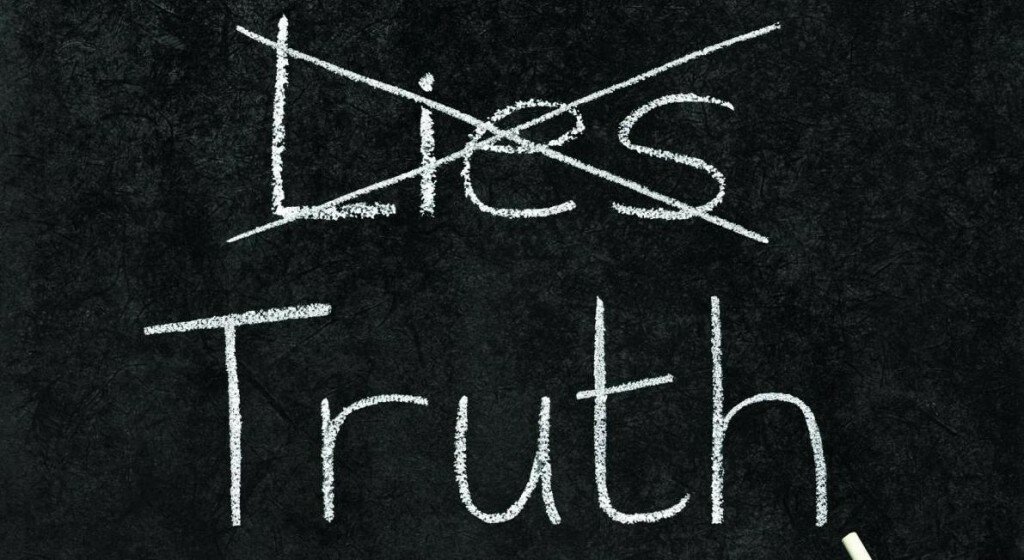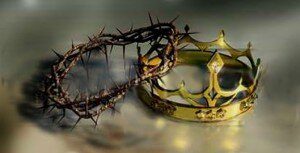The Bible is a big and complicated book. Or is it just me? If you’ve ever found the Old Testament particularly hard to read or navigate, I may have something that can help you out…

From my experience, we Christians can be a lot more familiar with the New Testament than the Old Testament, and one of the reasons is that more happens in the Old Testament. I mean more years of history are covered, more events happen, more people are involved, there are more big changes, more small changes, more everything!
When I started university (and Biblical studies in particular), I realised how unfamiliar with the Old Testament I was. I knew some of the stories, but I had little to no idea how it all fitted together. But context is so crucial. Knowing how an individual story or passage fits into the big story of the Bible’s history is vital if we want to understand that story or passage properly.
I had to get to grips with when and why Israel had kings, when the judges arrived (and who they were!), what the exile was all about, and countless other things. And then which books in the Bible told each of those stories. It is nearly impossible to understand the theological significance of any of the Old Testament without getting an idea of the big picture.
My gift to you!
In light of all this, when I was planning to lead a session for our interns at Gold Hill on Old Testament history, I thought they might find it useful if someone put together a crib sheet for them. So I did! This is the sort of thing I wish I’d been given to help me start to make sense of the whole Old Testament thing a number of years ago.
And since I suspect it isn’t just me that can find navigating the Old Testament tricky, I thought I’d put it up here too.
It’s very simple. It breaks down Old Testament History into 8 sections. Each marks a distinct period in the history of God’s people. And then within each one, I list the Biblical books that are part of it. For each book, I give a (very) brief outline of the book. For any given chapter of the Bible, you should therefore see how it fits into a section, and into the whole story. I should note that this isn’t THE definitive and correct way of breaking up Old Testament history – but it has helped me get my head around things a little more.
[Edit: since posting, it’s been pointed out (by my Dad – see below!) that I’ve missed out lots of books. This was deliberate! This is only an overview of the historical/narrative books of the Old Testament, and misses out the prophets, and the ‘writings’ (Job – Song of Songs). They may well be the subject of another post. Thanks Dad!]
Feel free to use, ignore, print and keep until needed, distribute, scribble on, deface or use as a dart board – whatever you like! If even one person finds it useful once in getting to grips with the Old Testament, it will have been worth posting.
—
THE BEGINNING OF TIME — ‘God cares’
Genesis 1–11: Creation (chs 1–2), fall (chs 3–5), the flood (chs 6–10), the tower of Babel (ch11). God creates, sustains and cares. Humanity rebels and rejects.
THE ‘PATRIARCHS’ (FOREFATHERS) — ‘God calls’
Genesis 12-50: God calls Abraham (chs 12–23), and through him Isaac (chs 24–26), Jacob (chs 27–36) and his children to be his agents in the world, makes a covenant with them and requires obedience. Through Joseph, they end up in Egypt (chs 37–50).
ISRAEL ESTABLISHED — ‘God leads’
Exodus: God leads Israel out of Egypt through Moses (chs 1–15), and sustains them as they journey to Mt. Sinai (chs 16–18) where He instructs them how to be His chosen people (chs 19–24) and gives them instructions for worship as they travel (chs 25–40).
Leviticus: God gives instruction to His people. The call is to be holy as God is holy, which includes laws on sacrifice (chs 1–7), the beginnings of the priesthood (chs 8–10), how to deal with uncleanness (chs 11–16) and practical guidelines for holiness (chs 17-27). The climax is the details about the annual Day of Atonement festival in chapter 16.
Numbers: The journey from Sinai (chs 1–10) to Kadesh where Israel rebel against God’s plans (chs 10–22) and are forced to wander in the desert of Moab for 40 years (chs 22–36). This book (like Exodus) mixes narrative plot with legal lists and material.
Deuteronomy: On the brink of their entry into the land of Canaan Moses addresses the people, reflecting on the journey so far (chs 1–11), repeating the law (chs. 12–26) and looking ahead to life in the land (chs 27–28). Moses’s last days are described (chs 31–34).
ISRAEL SETTLES — ‘God conquers’
Joshua: As God goes ahead of them, Israel cross into Canaan (chs 1–8), and conquer land within Canaan (chs 9–12). God divides the land between the tribes of Israel (chs 13–21) and the people settle, committing their lives in the land to God (chs 22–24).
Judges: Very early on in the land the people disobey God (chs 1–2), so God appoints judges over them to lead them on in conquest of the land (chs 3–21). They are a mixed bag!
Ruth: During the time of the judges, this book focuses in on one woman’s story and God’s provision for her.
THE FIRST KINGS — ‘God rules’
1 Samuel: God appoints Samuel as his servant (chs 1–7) to minister to the people who demand a king (ch 8). God gives the people Saul as king (chs 8–15), but as David comes to prominence King Saul begins a steep demise (chs 16–31).
2 Samuel: David becomes king of the nation (chs 1–7), and reigns as king (chs 8–24), at times faithfully and at times not.
1 Kings 1–11: David’s son Solomon reigns as king, building the temple in Jerusalem.
1 Chronicles 10 — 2 Chronicles 9: David reigns as as king, and is succeeded by Solomon who builds the temple in Jerusalem.
THE DIVIDED KINGDOM — ‘God warns’
1 Kings 12–22: At Solomon’s death a divide came in the kingdom creating Judah in the north and Israel in the south, two separate kingdoms with different kings (chs 12–16). Elijah serves as a prophet in Israel (chs 17–22).
2 Kings: Elisha takes over from Elijah’s work in southern Israel, combatting idolatry (chs 1–10). Israel has various kings (chs 11–16) until they are exiled by the Assyrians for their sin (ch 17). Judah has a mixture of good and bad kings (chs 18–25)
2 Chronicles 10–35: The kingdom is divided after Solomon’s death, and Judah has a mixture of good and bad kings.
THE FALL OF JUDAH — ‘God judges’
2 Chronicles 36:11-21: After a run of bad kings, Judah is deported into Babylon and forced to live under Babylonian rule as exiles.
THE RESTORATION — ‘God restores’
2 Chronicles 36:22-23: Cyrus, king of Persia, is used by God to free the people from Babylon, and they can return home.
Ezra: Ezra deals with rebuilding Jerusalem’s temple after the exile (chs 6–11) and how to live in what’s now a mixed nation (chs 7–10).
Nehemiah: Nehemiah is about rebuilding Jerusalem’s walls (chs 1–7), and starting again in God’s city as God’s people (chs 8–13).
Esther: Not all the Jews went back to Jerusalem and Judah. Some, like Esther, had to learn how to live in a non-Jewish nation. She becomes queen of Persia, and speaks out boldly for God’s people.
NB: this has missed out 1 Chronicles 1–9, which spans the whole of Old Testament history, through a family tree from Adam to those returning from exile. It doesn’t fit nicely into any of it, because it contains all of it!
If you liked this post, please share using the buttons below. Also, you can to receive all future posts by email. Thanks for reading!








 God didn’t stay away. God entered in.
God didn’t stay away. God entered in.
 I believe Luke holds off from the main event of Christmas – Jesus’ birth – to give his readers time to realise a response is required by those who want to be part of God’s plans.
I believe Luke holds off from the main event of Christmas – Jesus’ birth – to give his readers time to realise a response is required by those who want to be part of God’s plans.



![Kung Fu Angel]](/wp-content/uploads/2013/12/Kung-Fu-Angel.png)
 It’s Advent, and I have a plan. Each Sunday in Advent, I’ll post some thoughts on the beginnings of the four Gospels. Each Gospel introduces the arrival of Jesus in strikingly different ways, and it’s worth a look! Today, Matthew!
It’s Advent, and I have a plan. Each Sunday in Advent, I’ll post some thoughts on the beginnings of the four Gospels. Each Gospel introduces the arrival of Jesus in strikingly different ways, and it’s worth a look! Today, Matthew!
 There can be a tendency for us to focus too heavily on one part of this or the other. We celebrate the splendour of Jesus, the fulfilment of everything God had promised, the revelation of God’s complete purposes. Or we are thankful that God in Jesus identifies and came near little old me.
There can be a tendency for us to focus too heavily on one part of this or the other. We celebrate the splendour of Jesus, the fulfilment of everything God had promised, the revelation of God’s complete purposes. Or we are thankful that God in Jesus identifies and came near little old me.

 Nature is there to be enjoyed
Nature is there to be enjoyed